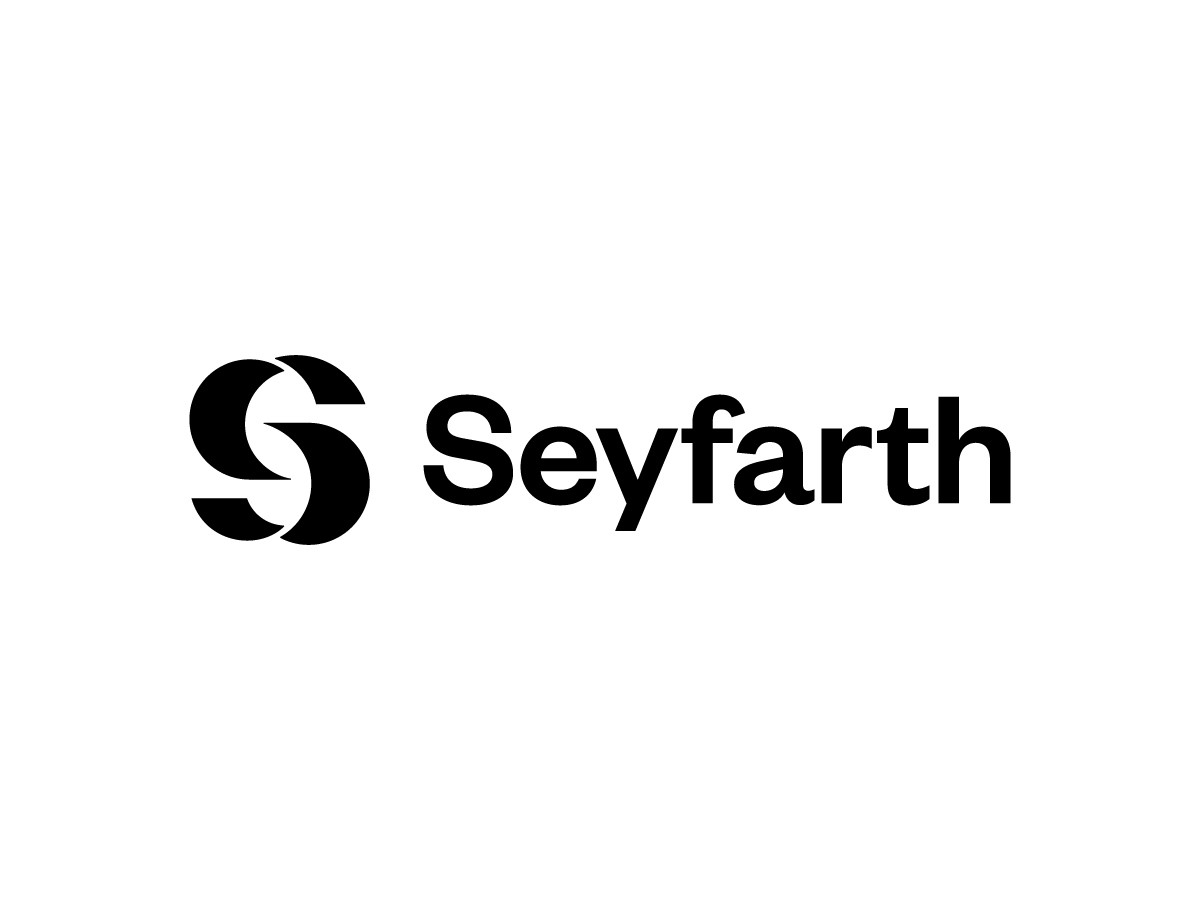Analysis of FTC Non-Compete Ban Legal Challenges: Does the Ban Pass Constitutional Muster? (And Other Issues) | Seyfarth Shaw LLP
On April 23, 2024, the Federal Trade Commission (FTC) voted in a 3 to 2 decision along party lines to adopt its Final Non-Compete Clause Rule (“Noncompete Rule”) banning post-employment non-compete clauses between employers and their workers. The Noncompete Rule is scheduled for publication in the Federal Register on May 7, 2024, giving the rule an Effective Date of September 4, 2024, pending any efforts to block the rule.
As anticipated, the Noncompete Rule was immediately met by legal challenges from business interests who assert that the FTC has brazenly overstepped its authority. Within hours of the Noncompete Rule’s announcement, the first lawsuit was filed against the FTC in the Northern District in Texas in Ryan, LLC v. Federal Trade Commission.[1] 3:24-cv-00986. The United States Chamber of Commerce, the nation’s largest business advocacy group, had announced prior to its unveiling that it planned to file suit to block the rule should the Agency vote to ban non-compete agreements. It followed through on its plans in a lawsuit filed this past Wednesday in the Eastern District of Texas.[2] As of the date of filing, a third lawsuit was filed against the FTC, its Chair Lina Khan, and each of the Commissioners in their official capacities on Thursday in the Eastern District of Pennsylvania which may potentially set up a circuit split for the Supreme Court’s review.[3] We expect these three suits to be merely the tip of the iceberg.
The court in U.S. Chamber of Commerce v. FTC has set a scheduling order for Chamber’s motion for a preliminary injunction that, after entertaining any forum challenges, gives the FTC until May 31st to respond or file a motion for summary judgment, until June 12th for the Chamber’s reply and opposition to summary judgment, with all motions fully briefed by June 19th. From there, the Court will set a hearing on preliminary relief and summary judgment, and if necessary a consolidated bench trial, on a date close to the completion of briefing that should allow sufficient time for resolution of the case before the Noncompete Rule’s effective date for any desired appellate review.
Each of the lawsuits offer similar grounds for challenging the Noncompete Rule, namely that: (1) the FTC lacked or exceeded the statutory authority to issue the Noncompete Rule, (2) the Noncompete Rule is an unconstitutional delegation of legislative power, and (3) the Noncompete Rule is arbitrary and capricious. The challengers’ arguments expose the infirmities of the Noncompete Rule in its current form, and in the months ahead, the courts will be tasked with answering the following questions.
- Did the FTC lack the statutory authority to issue the Noncompete Rule?
The FTC claims to derive its authority to issue the Noncompete Rule from Section 5 of the FTC Act, which declared unlawful “unfair methods of competition,” and Section 6, which authorizes the Agency “to make rules and regulations for the purpose of carrying out the provisions” of the Act. The challengers to the Noncompete Rule, however, argue that the Agency relies on novel interpretations of the FTC Act to promulgate substantive rules as it never has in its 114-year history. The FTC previously acknowledged in its notice of proposed rulemaking (NPRM) in the lead up to the final Noncompete Rule that it has never before used its rulemaking authority to regulate employee non-compete agreements.[4]
This places the Noncompete Rule squarely within the Major Questions Doctrine, a rule of constitutional interpretation holding that, when delegating rulemaking authority to agencies on questions of vast economic and political significance, Congress must provide clear and direct authority to the agency to do so, and the court will not defer to agency interpretations of its own enabling statutes.[5] The Court has previously applied the Major Questions Doctrine when agencies have claimed substantial new regulatory power over important economic areas,[6] or when the regulation will have a substantial aggregate economic impact.[7] In 2022, the Supreme Court invalidated the EPA’s renewable energy clean air regulations and OSHA’s vaccine mandate for private sector workers based on the Major Questions Doctrine, which recognizes that, when delegating rulemaking authority to agencies on questions of vast economic and political significance, “Congress does not usually ‘hide elephants in mouseholes.’”[8] The same reasoning is likely to apply here.
Non-competes have been a matter of political significance over the past several years, with numerous states enacting new laws restricting use of non-competes with low-wage workers. As we have previously reported here, in the past few years, Congress itself has considered, but failed to enact, numerous bills that would have banned or placed limitations on use of non-competes with workers. See VA Hiring Enhancement Act (H.R.3401) (to void non-competes for physicians going to work at VA hospitals); Workforce Mobility Act of 2021 (H.R.1367) (to ban employee non-competes); Workforce Mobility Act of 2021(S.483) (same); Freedom To Compete Act of 2022 (S.2375) (to ban non-competes for workers who are not exempt under the Fair Labor Standards Act); Restoring Workers’ Rights Act of 2022 (H.R. 8755) (same); FTC Whistleblower Act of 2021 (H.R.6093) (to void non-competes for whistleblowers to the FTC); Employment Freedom for All Act (H.R.5851) (to void non-competes for any employee who is fired for not complying with their employer’s COVID-19 vaccine mandate).
- Does the Noncompete Rule violate the Non-Delegation Doctrine?
Next, the challengers argue that, even if Congress had given the FTC authority to make rules on non-competes, such authority would be an impermissible delegation of authority under the Non-Delegation Doctrine. Article I of the Constitution provides that “[a]ll legislative Powers herein granted shall be vested in a Congress of the United States.” Accordingly, the U.S. Supreme Court has held that Congress may not transfer to another branch “powers which are strictly and exclusively legislative.” Although Congress may grant executive agencies substantial discretion to implement and enforce the laws it creates, it must still “lay down by legislative act an intelligible principle to which the person or body authorized to [exercise that authority] is directed to conform.”[9] The FTC’s authority for its noncompete ban again rests on its broad interpretation of Section 5 of the FTC Act that makes “unfair methods of competition” unlawful, but the Act itself provides no real intelligible principle to guide the Agency’s decision-making or discretion as would be required to survive judicial scrutiny. Even if Congress had intended to delegate to the FTC the power to make rules regarding employee noncompetes, the Agency’s vague reference to the phrase “unfair methods of competition” in Section 5 is too broad to meet this standard or pass constitutional muster.
Though the FTC will argue the doctrine of “Chevron deference” will save its rulemaking here, that is unlikely to be successful. The 40-year-old doctrine requires federal courts to defer to an agency’s reasonable interpretations of gaps and ambiguities in statutes they implement, but it has also faced significant legal challenge in recent years. In January 2024, the Supreme Court heard oral arguments in two cases, Loper Bright Enterprises v. Raimondo[10]and Relentless, Inc. v. Department of Commerce,[11] which seek to overrule Chevron. It is expected that the Supreme Court Justices will do so, or significantly limit Chevron deference once and for all which could spell doom for the Noncompete Rule.
- Is the Noncompete Rule arbitrary and capricious?
In addition to the FTC’s dubious claim of authority, the legal challenges take aim at the Noncompete Rule itself as arbitrary and capricious. The lawsuits claim that the FTC failed to properly take into consideration the vast economic impact of such a radical shift in policy, including the lost prior expectations of employers and workers who are parties to existing non-compete agreements.
The U.S. Chamber of Commerce points out that the Noncompete Rule imposes considerable retroactive consequences on businesses and workers in every sector of the economy, and if implemented, “will unilaterally void almost every existing noncompete agreement, thereby disrupting the settled expectations of parties that rely on the enforceability of reasonable noncompete agreements and depriving those who have given consideration for such agreements of the benefits of their bargain.”[12]
Moreover, the legal challenges assert that the Noncompete Rule upends centuries of established contract law as noncompetes have been enforceable contracts since before the Nation’s founding. Indeed, enforcement of non-competes has been a feature of English common law since the early 18th century,[13] and they were not uncommon in 1914, when Congress passed the FTC Act. This raises the question of whether the purported benefit of the Noncompete Rule to workers and the economy as a whole touted by the Agency outweighs the costs to employers who have long relied on the expectation of enforceable noncompetes to protect their specialized training, investment, and confidential information and whether the FTC engaged in reasoned decision-making or considered reasonable alternative proposals to its categorical ban.
CONCLUSION
Ultimately, we believe that the answer to each of these questions above is likely to be a resounding “yes,” and that the FTC’s Noncompete Rule is unlikely to be upheld in its current form. Further, we expect more lawsuits to come and that a successful court challenge on any of the bases outlined above would result in an injunction, at a minimum, staying implementation of the Noncompete Rule pending further court order or agency action. Such injunctive relief is likely to occur at the outset of litigation and prior to the Noncompete Rule’s Effective Date.
[1] Ryan, LLC v. Federal Trade Commission, Case No. 3:24-cv-00986, in the United States District Court for the Northern District of Texas.
[2] Chamber of Commerce of the United States of America, et al. v. Federal Trade Commission, Case No. 6:24-cv-00148, in the United States District Court for the Eastern District of Texas (Tyler Division).
[3] ATS Tree Services, LLC v. Federal Trade Commission, et al., Case No. 2:24-cv-01743, in the United States District Court for the Eastern District of Pennsylvania.
[4]
[5] See West Virginia v. Environmental Protection Agency, 142 S. Ct. 2587, 2622 (2022) (striking down EPA Affordable Clean Energy rules); National Federation of Independent Business v. Department of Labor, Occupational Safety and Health Administration, 142 S. Ct. 661, 669 (U.S. 2022) (striking down OSHA emergency temporary standard mandating COVID-19 vaccine or testing for private sector workers).
[6] West Virginia v. Environmental Protection Agency, 142 S. Ct. 2587, 2622 (2022).
[7] See, e.g., Texas v. United States, 809 F.3d 134, 181 (5th Cir. 2015).
[8] See, e.g., West Virginia v. Environmental Protection Agency, 142 S. Ct. at 2622-2623 (citing Whitman v. American Trucking Assns., Inc., 531 U.S. 457 (2001)).
[9] See Gundy v. United States, 139 S.Ct. 2116, 2123 (U.S. 2019) (“Congress does not usually ‘hide elephants in mouseholes.’”) (citing Mistretta v. United States, 488 U.S. 361, 372 (1989)).
[10] Loper Bright Enterprises v. Raimondo (S. Ct. Docket No. 22-451).
[11] Relentless, Inc. v. Department of Commerce (S. Ct. Docket No. 22-1219).
[12] Chamber of Commerce of the United States of America, et al. v. Federal Trade Commission, Case No. 6:24-cv-00148.
[13] Mitchel v. Reynolds, 24 Eng. Rep. 347 (Q.B. 1711).





